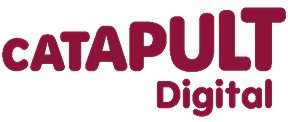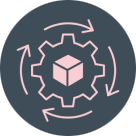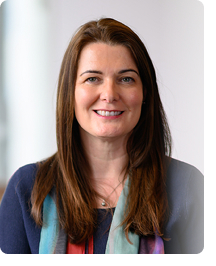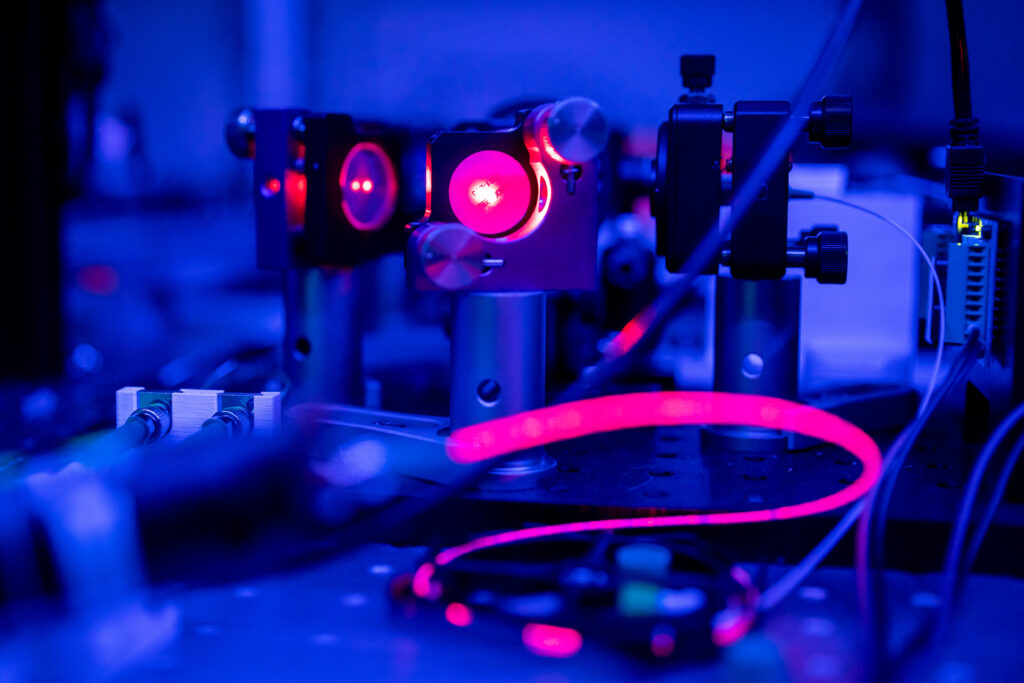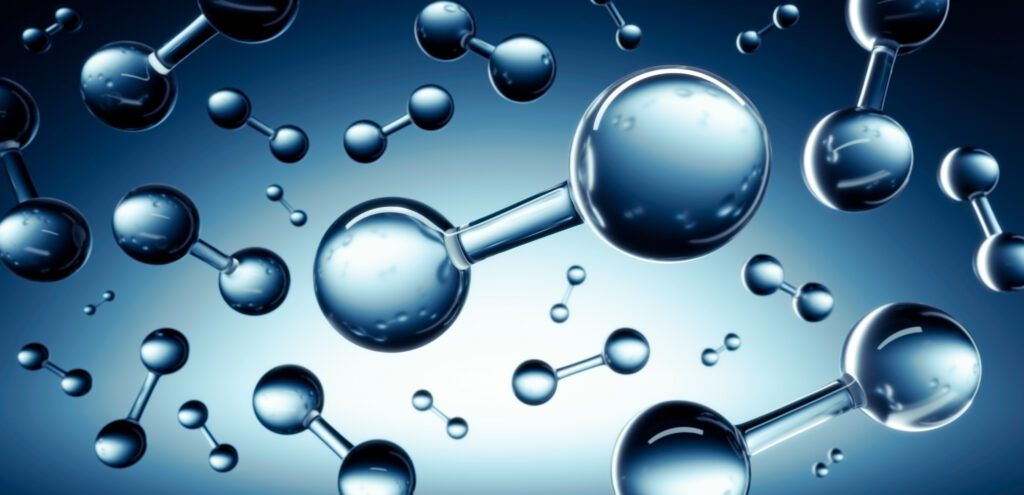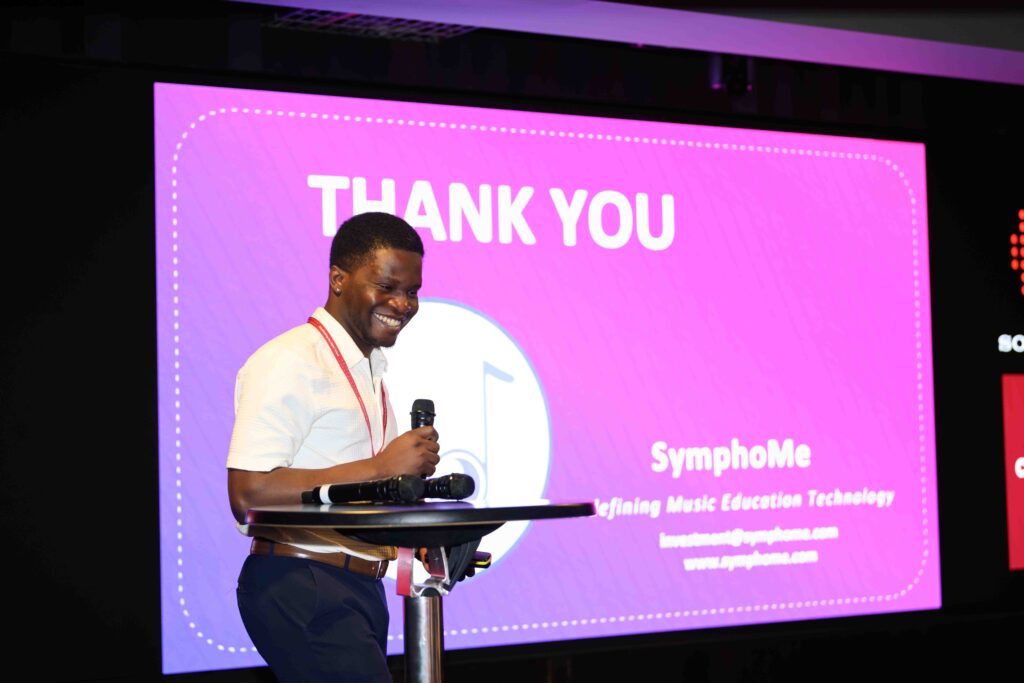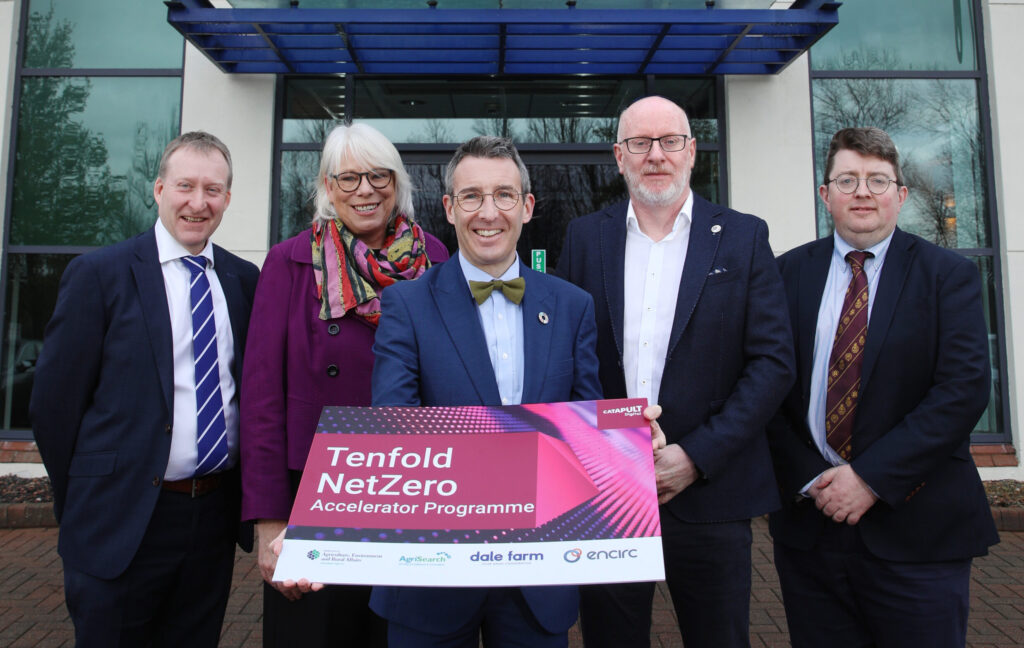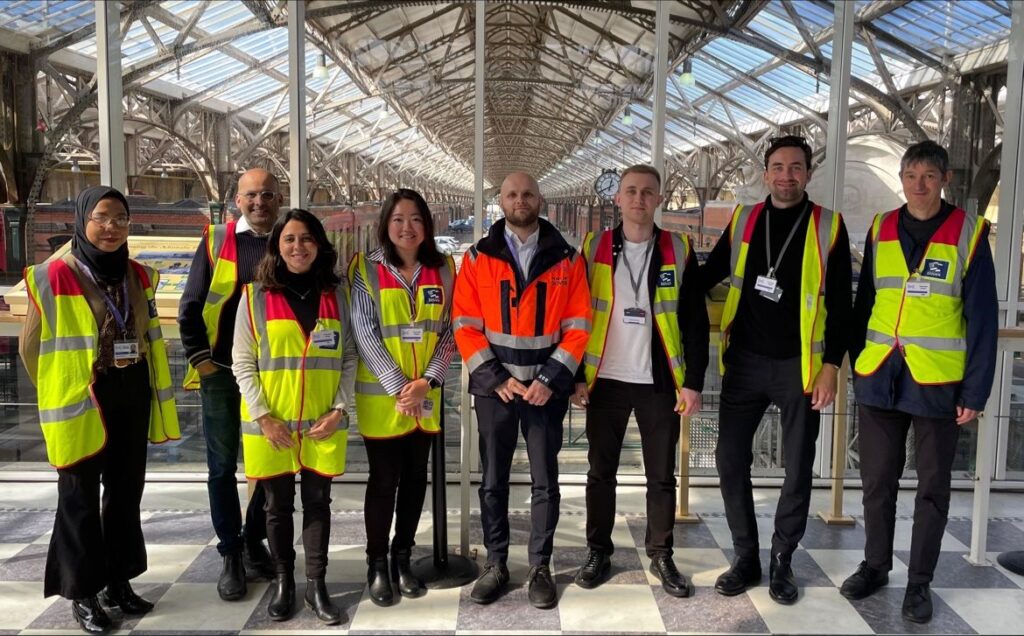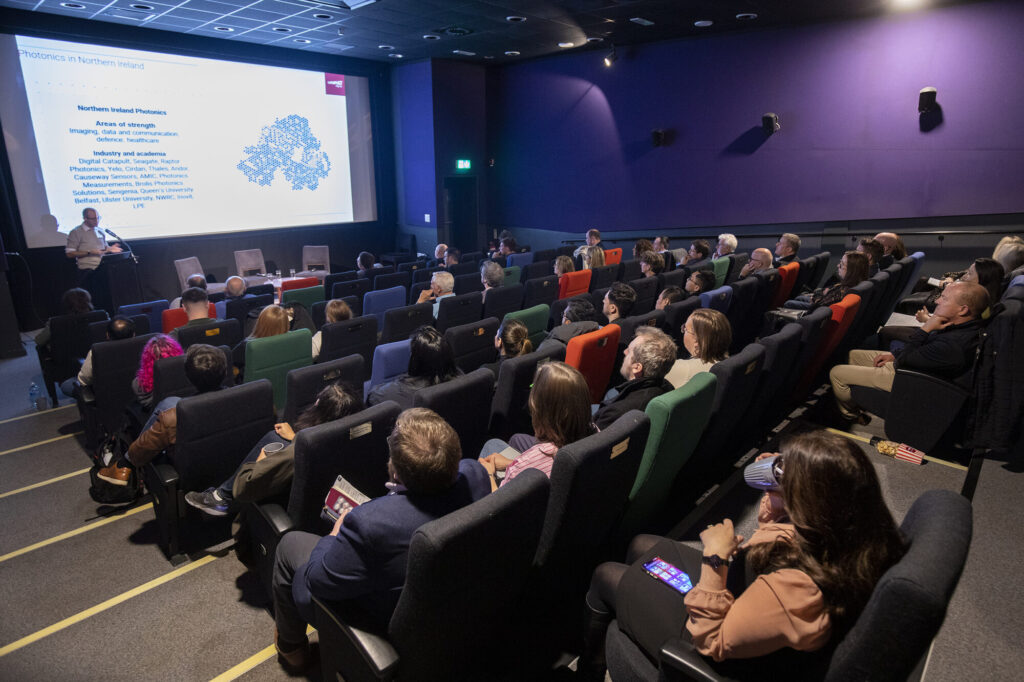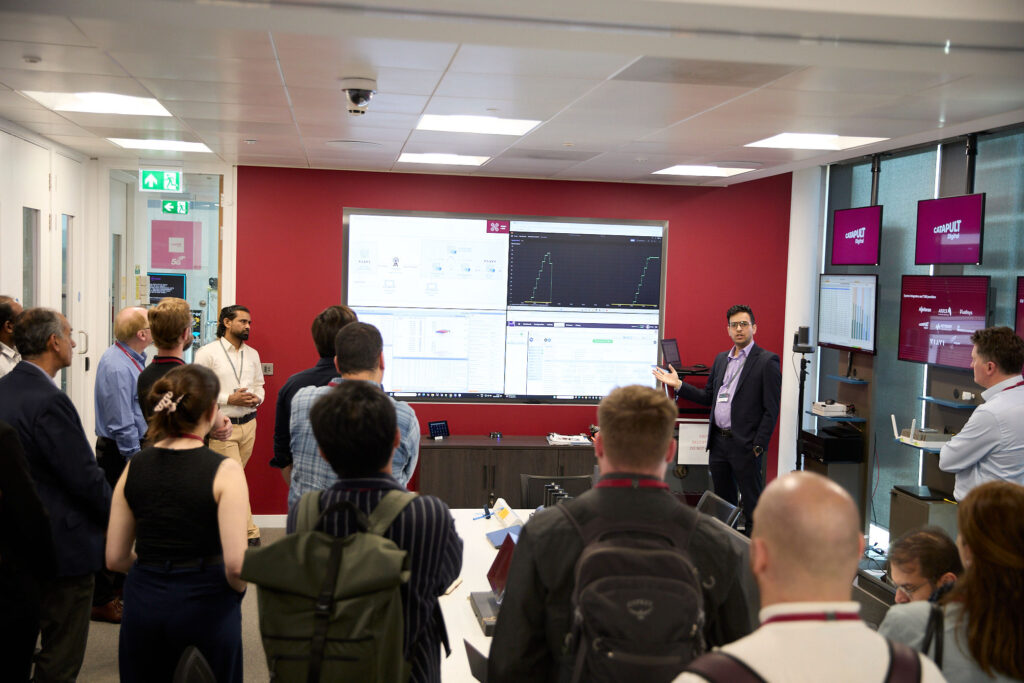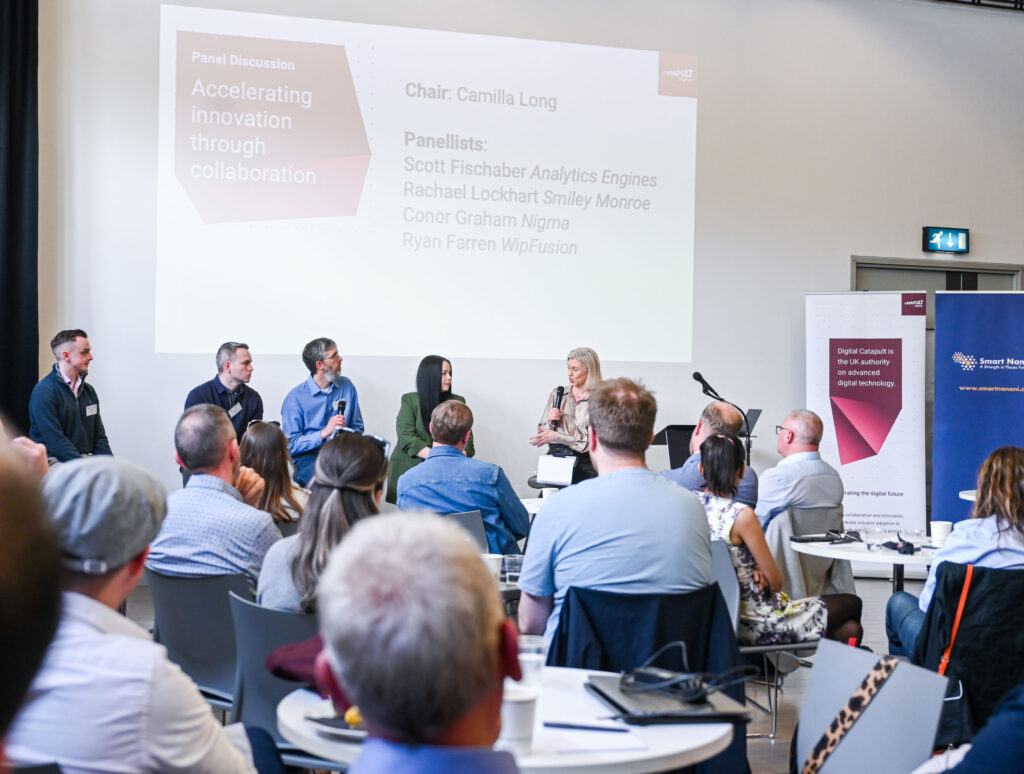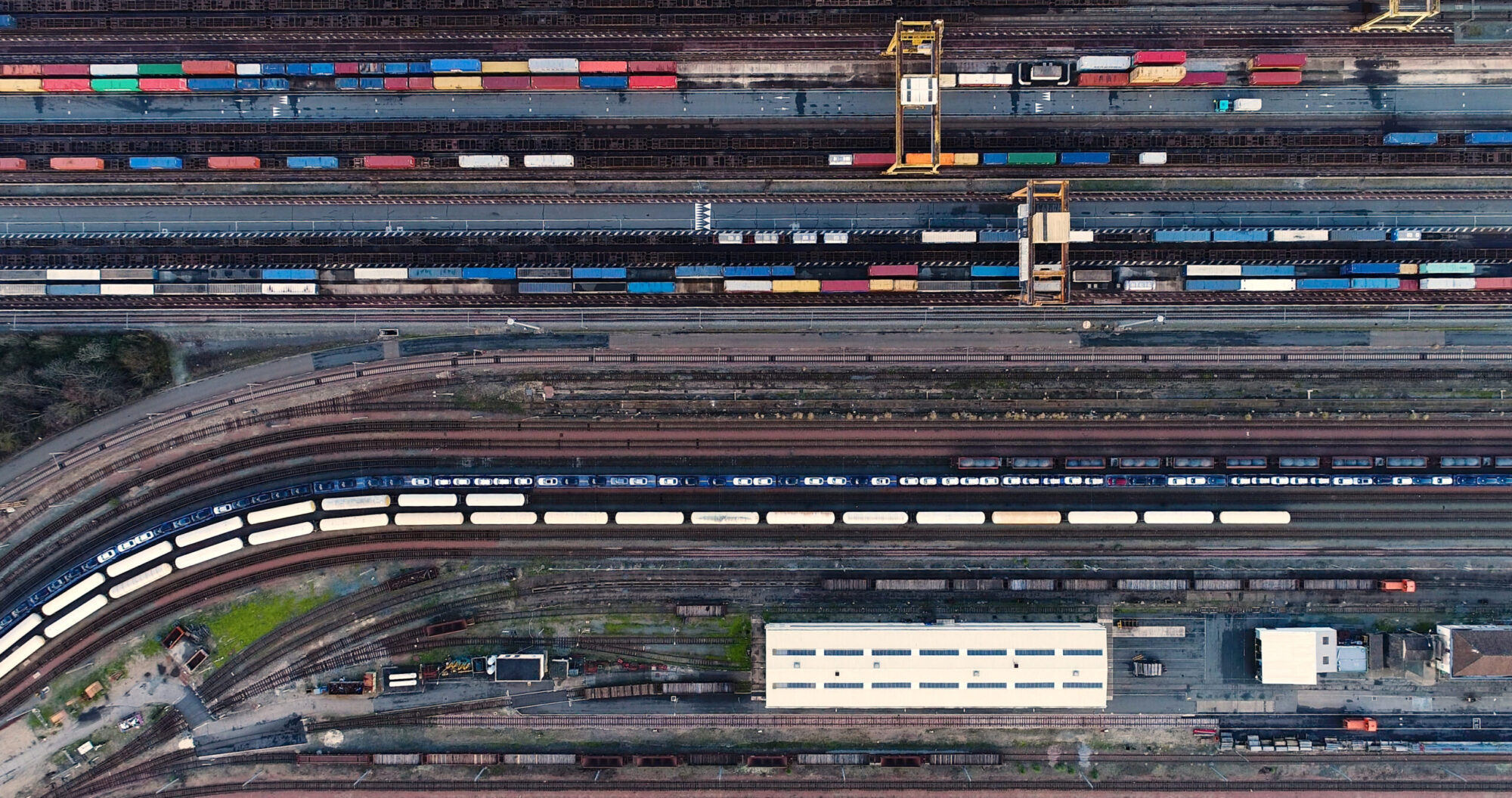The global cleantech market was valued at $5.5 trillion in 2024, and is expected to reach $7.4 trillion by 2030. This rapid expansion highlights the growing demand for sustainable innovation and the vast opportunities available to cleantech startups.
Infinitive Group is one such company seizing this momentum. They set out to develop a scalable digital solution to help HS2 Ltd manage and reuse thousands of temporary construction assets (e.g. access roads), across hundreds of construction sites. To support this mission and apply its data expertise to sustainable construction, Infinitive Group joined the Made Smarter Innovation Sustainability Accelerator, provided by Digital Catapult. The accelerator, designed to help deep tech companies scale, provided the ideal environment for a solution with impact.
The challenge
HS2 is the UK’s largest infrastructure project, with more than 350 construction sites along its 140-mile route. These sites contain thousands of temporary fixed assets, including car parks, foundations for temporary buildings and access roads, all of which become redundant as each section is completed.
At this point, the assets must be dismantled and sites returned to their original appearance. Material removed from the sites must be reused to meet HS2’s target of diverting 95% of recoverable materials from landfill. This is a complex process, as data on these assets is collected manually by contractors across many sites, with inconsistent estimations. Fragmented information inevitably leads to flawed decision-making. This can lead to over ordering materials for future construction sites, delay deconstruction and affect material transfers.
Infinitive Group, a consultancy and engineering tech firm, developed an application to save HS2 Ltd and senior decision maker’s time. This would be achieved by centralising and streamlining the process by which material is reused, saving money though a reduction in ordering new material and planning to maximise landfill diversion. It would also establish a framework for measuring the carbon benefits of reusing materials, as both Infinitive Group and Digital Catapult drive industrial decarbonisation efforts in the sector to unlock new economic opportunities.
Summary
Looking to expand into new industries, Infinitive Group joined the Made Smarter Innovation Sustainability Accelerator to apply its data expertise to sustainable construction. The accelerator was a national programme funded by the Made Smarter Innovation Challenge and Innovate UK and delivered by Digital Catapult. It was designed to enable UK manufacturers to adopt digital solutions that enable sustainable manufacturing and make a positive environmental impact.
Designing a solution that works on the ground
In collaboration with HS2 Ltd and Digital Catapult, Infinitive Group developed ILUS – a platform for planning and managing the reuse of temporary construction materials. This innovation helps optimise material management, cut costs, and quantify carbon savings on major infrastructure projects. With a view to enabling the company to scale successfully and accelerate the practical application of deep tech in the transport and infrastructure sectors, Digital Catapult supported Infinitive Group to develop and deploy its solution in a real-world environment.
Infinitive Group knew that success depended on understanding the challenges faced by site managers on the ground. Digital Catapult supported Infinitive Group to scope specific challenges in the sector and identify the problems involved in tracking temporary fixed assets, and the lack of tools that might enable them to be reused.
Digital Catapult went on to provide Infinitive Group with innovation and technological consultancy on sustainability challenges and industry best practices, along with appropriate insights which helped it develop a digital platform to address five key issues:
Capture supply
Estimate recoverable material yields from deconstructed temporary assets before deconstruction.
Match supply to demand
Enable users to log their material needs and match them to future stock.
Optimise reuse allocation
Use multi-criteria decision analysis to prioritise matches based on distance, carbon impact, and site category.
Prevent double allocation
Ensure materials are not double-booked or over-allocated.
Provide reporting and analytics
Offer insights into material flows, carbon savings, and the impact of reusing assets.
The impact and what comes next
Thanks to the collaborative efforts of Infinitive Group, HS2 Ltd and Digital Catapult, ILUS went into development in July 2024 and internal testing began in January 2025. At present, the team are planning a testing phase with construction managers in a live environment. When operational, it will be a scalable platform for managing material reuse, based on a centralised data repository, a ticketing system to match supply and demand, and a methodology for quantifying carbon savings from material reuse.
For Infinitive Group, the process has created opportunities for expansion into AI-driven analytics and potential partnerships with construction firms and sustainability initiatives. It should also lead to the development of predictive maintenance and lifecycle tracking solutions.
Support from Digital Catapult also paved the way for new collaborations beyond HS2 – including opportunities in infrastructure, homebuilding, and power generation. These developments reflect Digital Catapult’s broader mission to scale deep tech innovators and accelerate industrial decarbonisation.
Looking ahead: Circular economy at scale
More broadly, the accelerator programme provided valuable insights into the challenges of a circular economy approach to construction. Martin Halligan, director of Management and Advisory at Infinitive Group, said: “While data inconsistencies posed an initial hurdle, our collaboration with HS2 Ltd and Digital Catapult helped shape ILUS into a solution with real-world applications.
